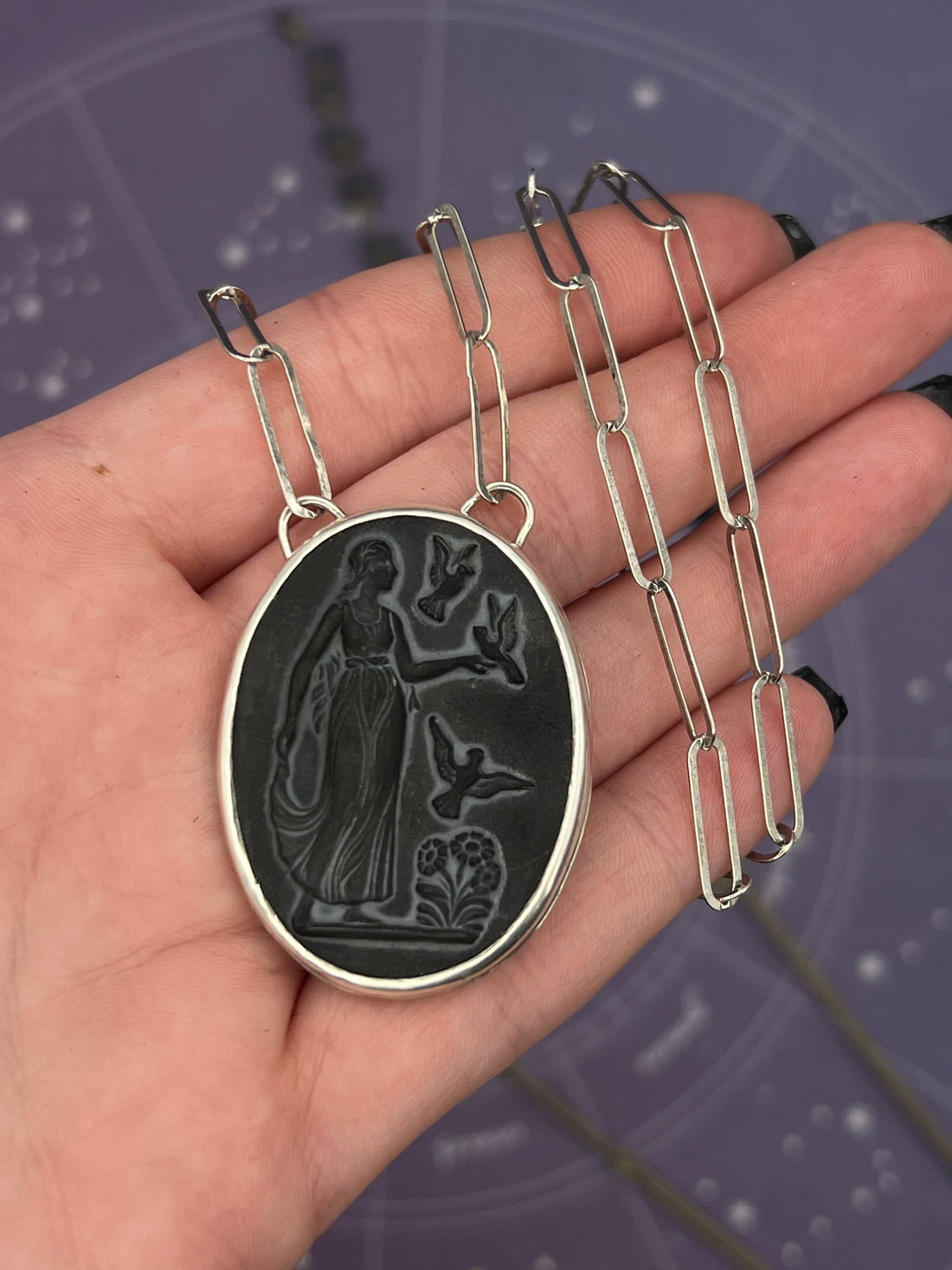
Protect Your ASSets - Lessons From Our Ancestors
We are living in tumultuous times. Many of us, especially women, are losing our rights and taking us back in time. Our mothers, grandmothers, and beyond fought for our rights that are now being stripped away. We continue to rise up, fight for our rights and progress, but we still need to protect ourselves in case. We can learn from our ancestors how to protect our assets and ourselves during these times.
For reference, here are some women' s rights that have happened in more recent times that you may not be familiar with. Many of these have happened in our parents and grandparents lifetimes. Some of us being the first women born in our lineage with these rights.
1993: Marital rape becomes illegal in all 50 states. However, to this day, there are many states that the law treats marital rape and non-marital rape quite differently.
1988: The Women’s Business Ownership Act was signed into law. This allowed women to obtain business loans without needing a male co-signer. Prior to this, many lenders required a male family member to co-sign a business loan that a woman applied for.
1974: The Equal Credit Opportunity Act was passed. Prior to this, women could not apply for a loan or credit card in their own name. Women had to have a male co-signor for credit cards and loans, which would use the man’s credit history - preventing a woman from building any credit history.
1972: The Supreme court case Eisenstadt vs. Baird ruled in favor of Baird. This was a landmark case that gave the right to unmarried individuals to obtain contraceptives which equalized the access to birth control.
1969: California passed the Family Law Act allowing women to file for no fault divorce. Prior to this, proof of adultery or abuse had to be proven in order to get a divorce. Shockingly, it wasn’t until 2010 when all 50 states enacted a no fault divorce law.
1965: The Voting Rights Act is passed finally giving black women the right to vote - 45 years AFTER the 19th Amendment was ratified.
1963: The Equal Pay Act is signed into law. This prohibited wage discrimination based on sex. However, the act allowed for wage differences based on seniority and merit.
Sure, we could go back further and further in the timeline. However, I wanted to point out how many of these rights women have fought for in the last few generations - very recent history. I would also like to point out that many of these laws did not protect all women's rights - only white women’s rights. For example, it took 45 years after the 19th amendment for black women to have the right to vote. So yes, myself and fellow white women, we do have privileges that many other women do not. We need to recognize and acknowledge this privilege, so we can fight for the future of ALL women’s rights.
Now, how do we protect ourselves, our assets, and our rights? There are many ways we can do this. The biggest and most important thing is we need to stay educated on current events. We need to be educated about the laws that are trying to be passed, and how they can affect rights. For example, we have read the awful stories of countless women who have lost their lives to ectopic pregnancies and pregnancy complications due to abortion laws since Roe v. Wade was overturned. These tragedies should have been prevented. Roe v. Wade should have never been overturned. Now, we must fight to get it reinstated to protect ourselves and future generations.
Did you know that the Equal Rights Amendment was never ratified? The Equal Rights amendment would explicitly prohibit sex discrimination, guaranteeing equal legal rights to ALL American citizens regardless of sex. With this amendment never being ratified, women do NOT have equal rights to men in America. We as women are not protected by the Constitution. The Equal Rights Amendment began as early as 1921 when the National Woman’s Party planned to campaign for an amendment to the constitution to guarantee women equal rights to men. This fight has been going on for OVER a CENTURY, and women still do not have equal rights. This is why many women were devastated by the overturning of Roe v. Wade. If one right is taken away from women, what will stop them from taking away more rights? Why go backwards in time instead of progressing forward? This is a serious question everyone needs to truly sit with. Set all of your opinions aside for a moment, and think truly why go backwards instead of progress forwards?
The goal is to always progress forwards. However, there are things that our ancestors did that can still serve us well today. Before women could have their own bank accounts and have control of their finances, it was commonplace for women to ask for jewelry for holidays and special occasions. Specifically, precious metal jewelry. The jewelry could be worn and enjoyed, and if something came up where a woman needed money for a private matter, she could take it to a jeweler or pawn store, and get cash for it. This way, her husband or family did not have to be involved. If they happened to notice she wasn’t wearing that “gold locket” they gave her, it was easy to make an excuse such as, “I haven’t seen it since my beach trip. I must have lost it!” Still to this day, it is commonplace in many cultures to “wear your wealth.” Many people invest money into precious metal jewelry that they can easily wear if they have to get up and leave their home.
Now, I’m not saying you should only ever buy precious metal jewelry. However, I do believe capitalism has made us more prone to impulse purchasing, and not always paying attention to what products are made of. Yes, even I, a jeweler, own costume jewelry pieces. Most of my jewelry is sterling silver, because it’s what I love. I collect vintage jewelry, and make myself sterling silver jewelry. It has come in handy where periodically, I go through my jewelry box to see what I no longer wear and am willing to part ways with. If the piece is vintage or a designer brand, it is worth more than just its silver value and I sell them. Then I reinvest that money into something else of quality I am wanting. Intrinsic value. Silver, gold, and other precious metals will always have intrinsic value - their metal value. Costume jewelry has no intrinsic value. If a designer brand, it may have some collector value - but most likely as trends are always changing it will be out of style. Precious metal values are always changing, similar to stock prices. For example, when I first started working with jewelry, silver was around $13 an ounce. Now it has been around $34 an ounce. The price has almost tripled in the last decade. The silver jewelry I have is worth 3 times more now than it would have been if I sold it a decade ago. Plus, I’ve gotten to wear it and enjoy it. Think about this when you’re purchasing your next piece of jewelry.
Another lesson from our ancestors is knowing how to cook and bake from scratch. I am grateful that I spent a lot of time with my grandparents as a child who taught me how to cook and bake from scratch. However, I know it’s commonplace for many people today to eat out for every meal and not know how to cook. Of course, you don’t have to quit eating out and only cook from scratch. It is a good skill to have though, and one worth learning. Perhaps start out small, one meal a week, and build over time. Learn how to bake your own bread, preserve vegetables from your own garden.
Another skill, gardening. I started gardening a few years ago simply for the joy in it, and using it as a daily mindfulness practice. I started small with mostly an herb garden. Let me tell you, once you make fresh pesto with basil you grew in your garden, store bought will never taste the same. There are a lot of plants you can grow in containers if you don’t have a yard. It’s something that is easily accessible for many people. Local libraries often have seed exchanges. If gardening isn’t for you, you can get fresh produce from local farms at markets or by subscribing to a CSA box.
There are many skills that were commonplace for our ancestors that many of us do not know. Sewing, woodworking, gardening, car maintenance, home repairs, and more. We can’t go out and learn every skill and be completely self-sufficient. However, having some self-sufficiency and the joy that comes with it is an active form of resistance. Bartering and trading within our local communities is an active form of resistance. Speaking out about our nation’s lawmakers taking us back in time instead of progressing forwards, is an active form of resistance. There are many ways for us to incorporate small acts of resistance in our everyday lives, and the more people that do that - the bigger the impact it makes.
